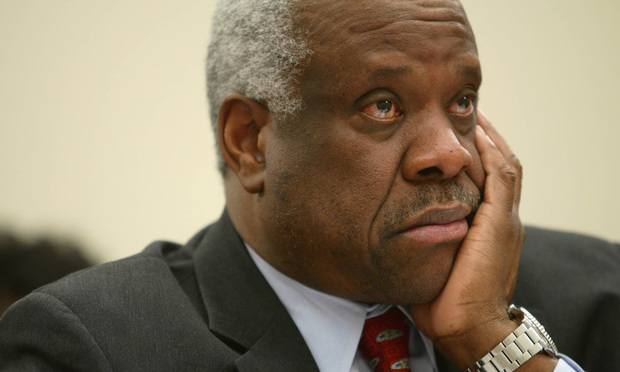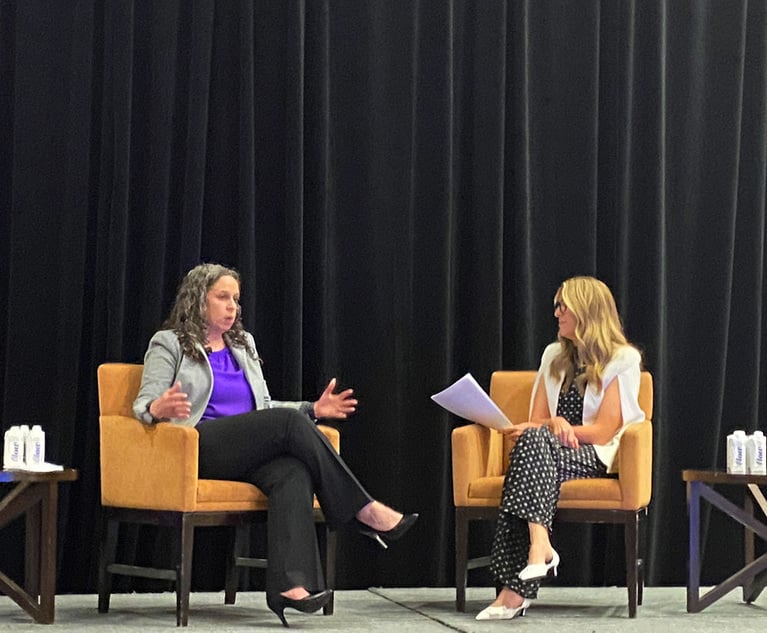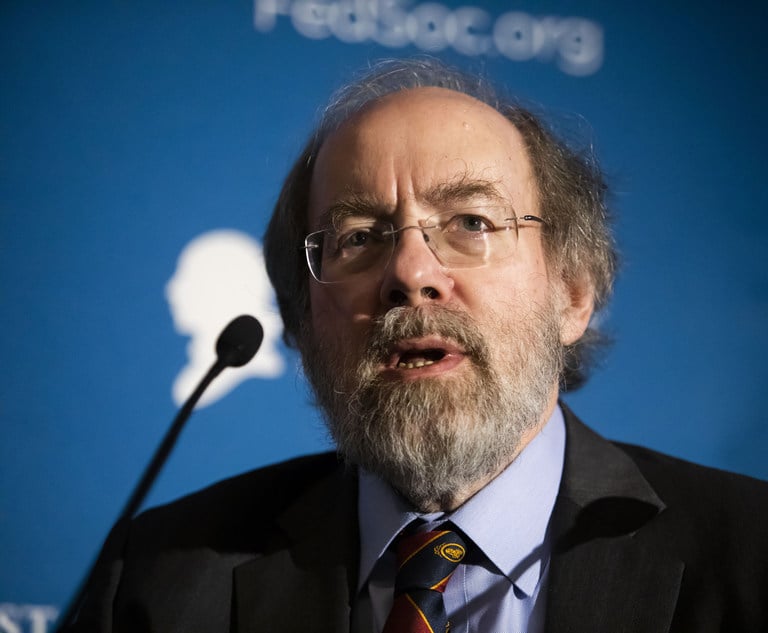Justice Clarence Thomas on Monday sharply criticized his own majority opinion in a 15-year-old telecommunications case and an underlying decision that says courts must give deference to agencies interpreting their own regulations, urging his colleagues to reconsider both rulings.
Thomas wrote alone in an 11-page dissent that said the Supreme Court should have agreed to review the tax case Baldwin v. United States. The Baldwin petition, arriving from the U.S. Court of Appeals for the Ninth Circuit, had asked the justices outright to overrule Thomas’s 2005 decision in National Cable & Telecommunications Assn. v. Brand X Internet Services, a regulatory case that said a federal agency had correctly interpreted the Communications Act of 1934.


 Justice Clarence Thomas (2013). Photo: Diego M. Radzinschi / ALM
Justice Clarence Thomas (2013). Photo: Diego M. Radzinschi / ALM






